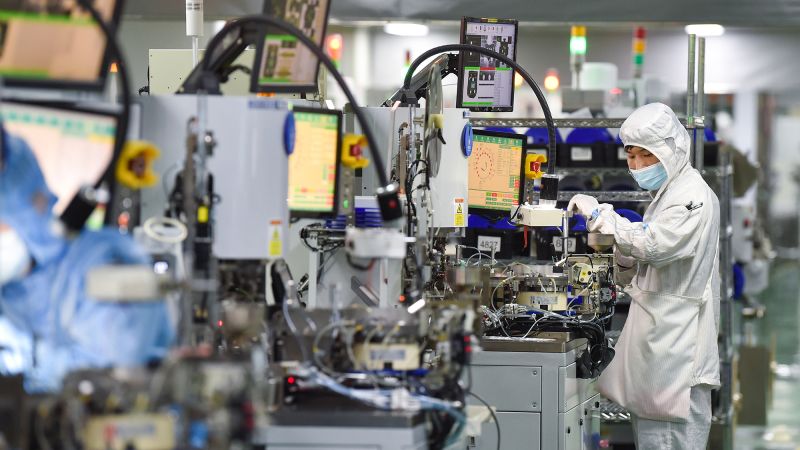China is making a robust push to become a tech superpower by setting up its largest-ever semiconductor state investment fund worth $47.5 billion. The fund has investments from six of the country’s largest state-owned banks and is part of China’s Made in China 2025 road map, which aims to make the country a global leader in industries such as artificial intelligence, 5G, and quantum computing. This move comes as the US imposes restrictions on the export of American chips and chip technology in an effort to curb Beijing’s ambitions.
The latest investment vehicle, known as the “Big Fund,” is the third phase of the China Integrated Circuit Industry Investment Fund. The fund aims to bring China’s semiconductor industry up to international standards by 2030 and will primarily focus on chip manufacturing, design, equipment, and materials. Shares of top Chinese chipmakers have surged following the announcement, with companies like Semiconductor Manufacturing International Corporation (SMIC) and Hua Hong Semiconductor seeing substantial gains.
Despite Xi Jinping’s ambitions to achieve tech self-reliance and make China a global leader in technology, the country faces roadblocks such as corruption scandals within the semiconductor industry and export controls imposed by the US and its allies. The “Big Fund” has been marred by corruption scandals, with some of China’s top figures in state-owned chip companies being investigated for bribery charges. The US has implemented export controls that ban Chinese companies from buying advanced chips and chip-making equipment without a license, while urging its allies to enact similar restrictions.
In response to Western sanctions and export controls, China has imposed its own restrictions on strategic raw materials critical to the global chipmaking industry. The new chip fund serves as a defensive move against Western sanctions and as part of Xi’s long-held ambitions to establish China as a global technology leader. Despite efforts to restrict China’s access to foreign technology, Chinese companies like Huawei have made significant advancements in semiconductor technology, with Huawei introducing a smartphone powered by a chip made by SMIC.
Xi has expressed confidence in China’s scientific and technological development, stating that “no force can stop China’s scientific and technological development.” The Netherlands, home to ASML, the world’s sole manufacturer of extreme ultraviolet lithography machines essential for making advanced semiconductors, has restricted the shipment of some of its equipment to China. This highlights the global competition in the semiconductor industry and the strategic importance of advanced technologies in shaping the future geopolitical landscape.


